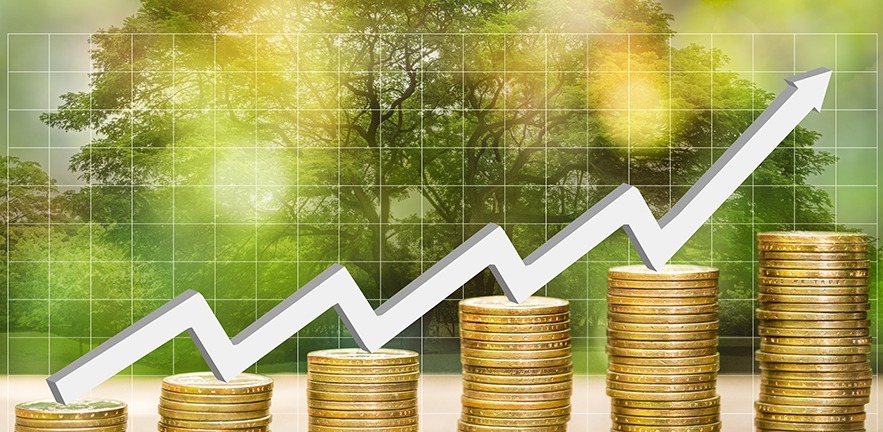
Accountants may seem unlikely warriors in the frontline of the climate change challenge, but the outlook is set fair for their role to become increasingly crucial.
Climate change and other environmental unknowns could be said to be some of the biggest challenges facing our species. And, in turn, these unknowns ask tough questions of something also very important to us – financial stability.
Investors are increasingly demanding transparency on environmental risk from the organisations they trust to manage their money. This imperative recently led the Financial Stability Board (FSB) to create a Task force on Climate-related Financial Disclosure (TCFD), which has now set out voluntary recommendations for how public companies should report to investors on risks and opportunities relating to climate change.

The University of Cambridge Centre for Financial Reporting and Accountability (CFRA) will make environmental financial reporting the subject of its first conference in April 2019. Cambridge Master of Accounting (MAcc) Programme Director Mike Willis says the choice of subject reflects one of the growing issues in financial reporting:
“It’s no secret that corporations’ activities can have an impact on the environment, and for some time, firms have been required to disclose the financial impact of certain environmental liabilities and risks. For example, a mining firm may be required to restore mined land to its initial state after it finishes extracting minerals. It must disclose an estimate of the financial impact of this obligation. It must do so today, even if the obligation is to be settled years in the future. This is complicated, because the timing and amount of the expenditures are highly uncertain.
“Recently, regulators have considered requiring firms to make more comprehensive disclosures about potential future climate-related financial impacts. This will require a new set of rules and principles to address the long-time horizons and high degree of uncertainty. For example, if sea levels rise X feet or if seasonal high temperatures rise X degrees, how might this affect a firm’s assets, operations and supply chain? What if they rose twice that amount?”
It all means accountants will be increasingly at the forefront when it comes to offering excellence in environmental and climate related financial disclosure. Mike is clear about the challenges in implementing new environmental disclosures:
“Firms will need to have a deeper understanding of climate change and undertake a much broader forward-looking analysis of how different climate change scenarios might affect a firm’s financial obligations. This will require accountants to have the right skills. It will also require external auditors to be familiar with the key issues and methodologies related to these disclosures.”
Speaking at the conference will be CJBS specialist in environmental and climate related financial disclosure, Greg Rogers. Author of Financial Reporting of Environmental Liabilities & Risks after Sarbanes-Oxley (Wiley), Greg is a keen advocate of building climate resiliency in corporate strategy and climate efficiency in capital markets.
Greg explains the necessity for financial and non-financial across all sectors to understand how important robust environmental reporting is and how to get their reporting right:
“Organisations with heightened exposure to climate-related transition and physical risks around greenhouse gas (GHG) emissions, energy, and water dependencies associated with their operations and products (and those of their related supply and distribution chains) will need to undertake sophisticated analysis to produce the type of information needed to inform climate-resilient organisational strategies and climate-efficient financial markets. In addition to climate risk, firms may face climate disclosure risk, in the form of shareholder litigation and regulatory scrutiny, if climate-related financial disclosures are inadequate or misleading.”
Accountants should expect pressure for improved disclosure to continue, as central bankers and macro prudential regulators remain concerned about mispricing of climate risk and the possibility of a Minsky moment in the event of a sudden re-pricing event. Insurance companies are concerned about climate impacts on the asset and liability side of their balance sheets. At the retail level, assets under ‘responsible investment’ continue to grow as women and millennials increase demand for sustainable investment options. This is, in turn, leading asset owners and managers to seek more environmental, social and governance (ESG) information about their portfolio companies.”
As for the accountancy skills which will increasingly be at a premium in this arena, Greg cites:
“Quantitative assessment of climate-related financial risk and opportunity requires skills in climate policy, ESG criteria, climate-related financial disclosure (TCFD), securities law and regulation, generally accepted accounting principles, fair value measurement, statistical analysis, and stochastic modelling, among others.’
His advice is that accountants considering specialising in this area should take time to study the TCFD recommendations, and research tools for measurement and decision-making that are well suited to high levels of uncertainty, such as scenario and decision analysis.
“If you are thinking of specialising in financial reporting around climate issues, start by studying the recommendations of the TCFD and familiarising yourself with methodologies designed to improve decision making under conditions of uncertainty. Be prepared to be flexible and upskill constantly as this very new accounting challenge evolves. Existing rules and principles designed for contingent liabilities and single-variant contingencies are ill suited for the task. A new set of rules and principles is needed to rigorously assess potential future climate-related financial impacts, and accountants will have to be ready as these come to the fore.”

